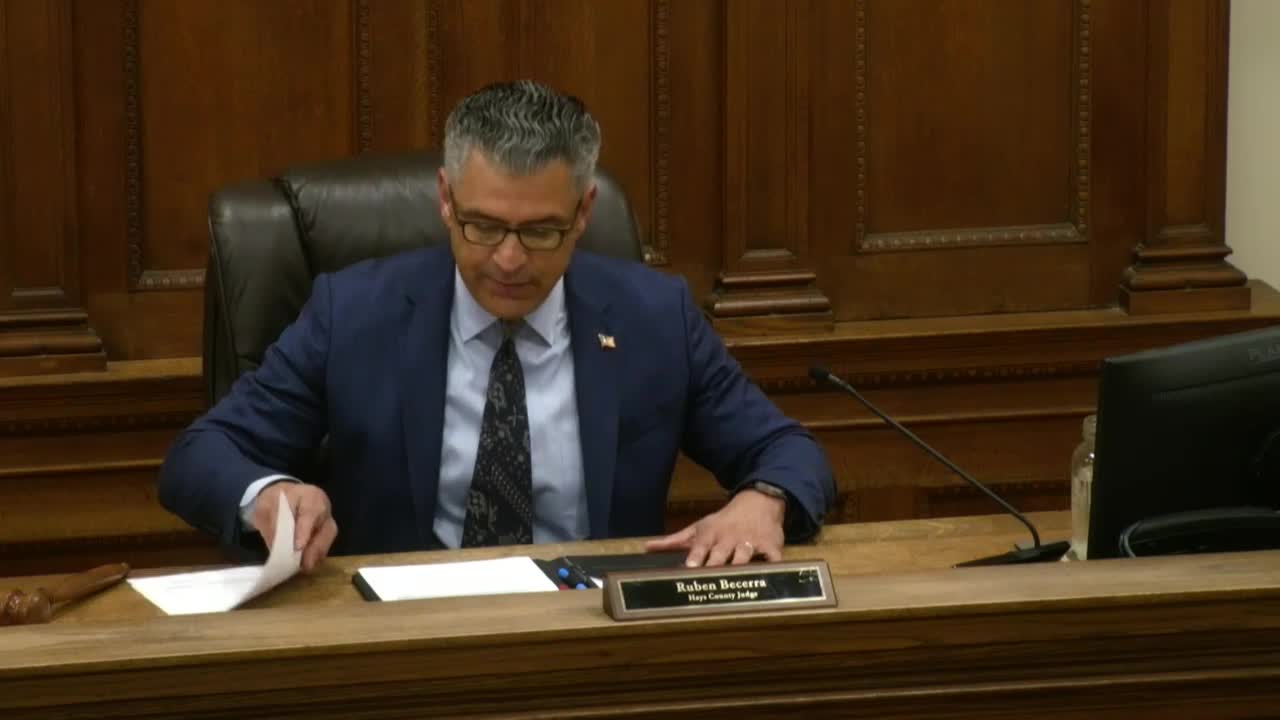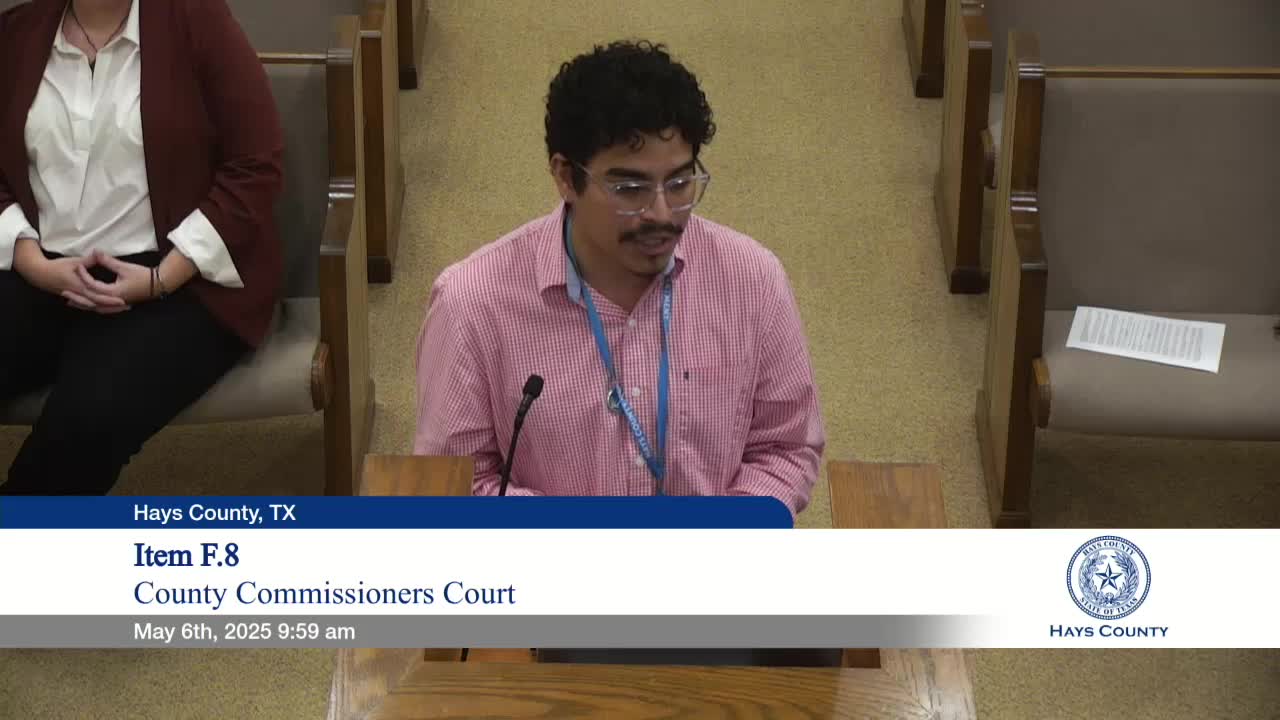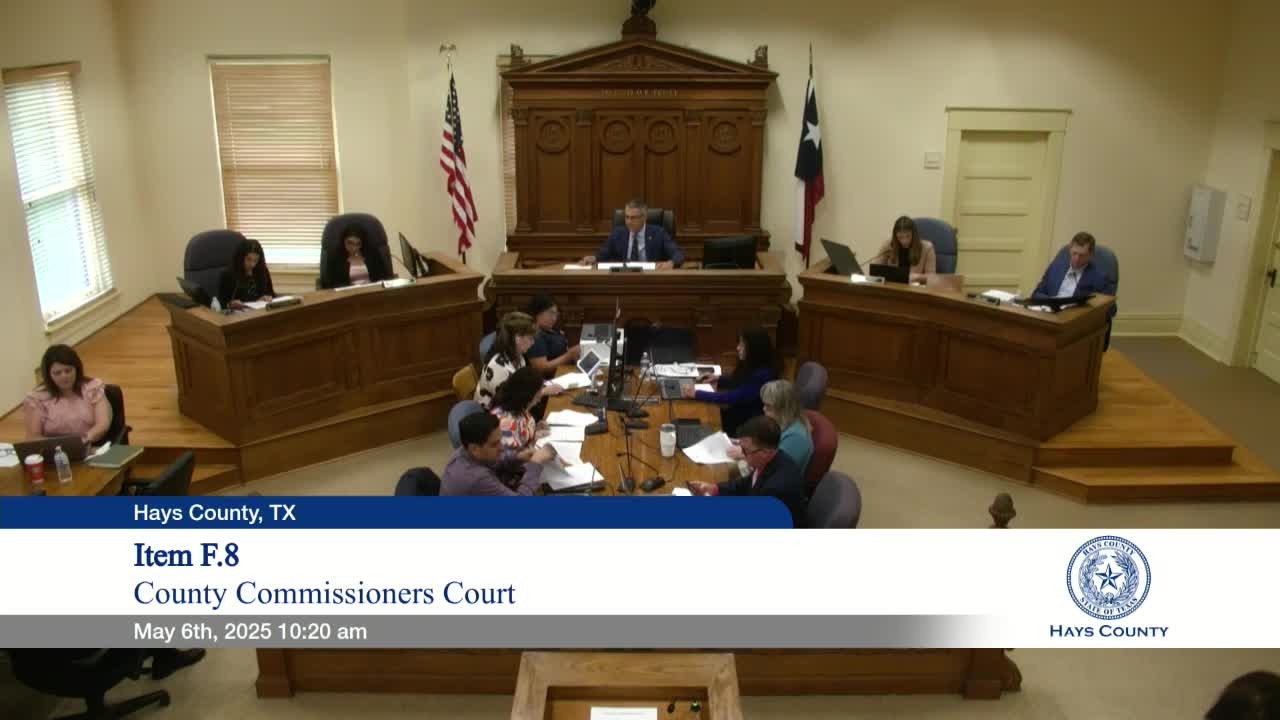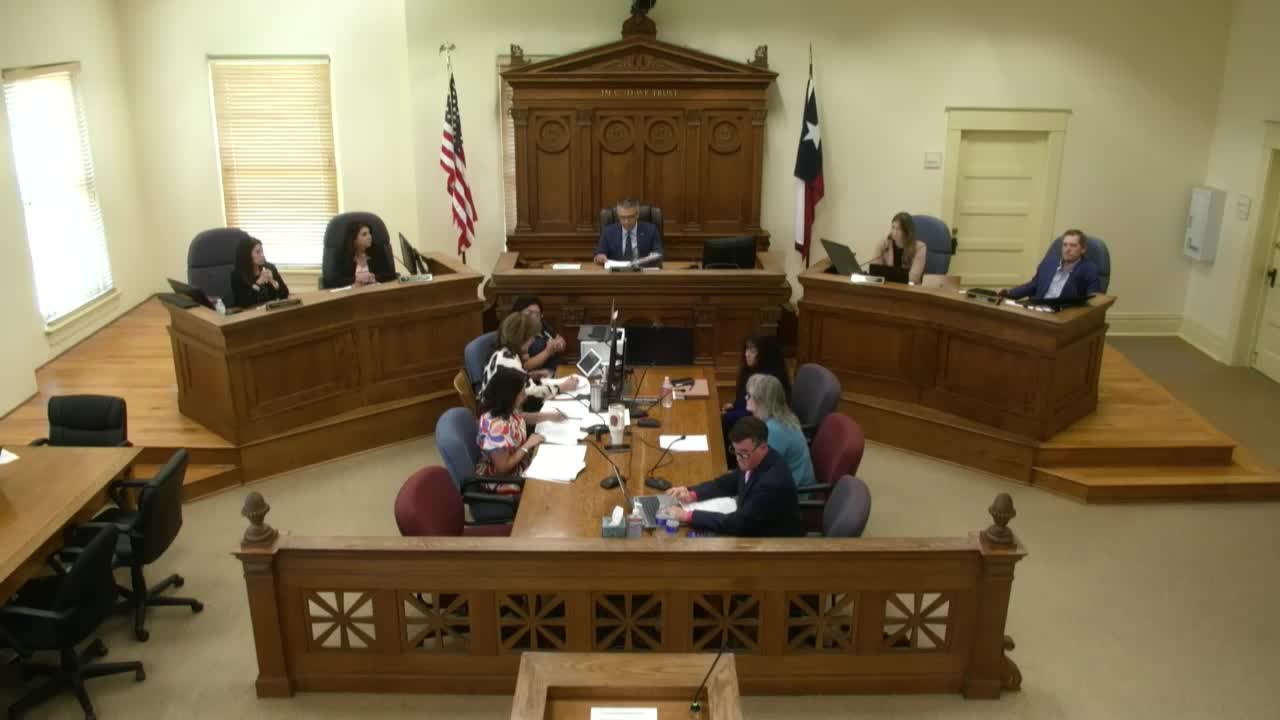Article not found
This article is no longer available. But don't worry—we've gathered other articles that discuss the same topic.

Hays County adopts proclamations recognizing May observances and local heritage initiatives

Hays County health director reviews measles response, cites communication leaks and lab limits

Court debates mental‑health diversion center design and approves 16 correctional officer hires to bring inmates back to Hays County

